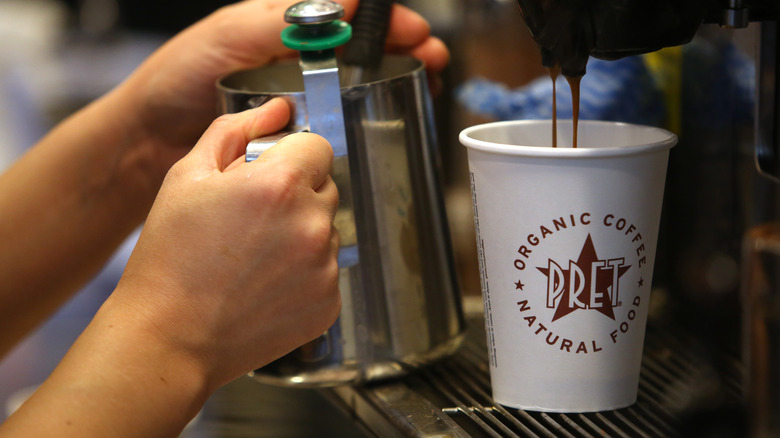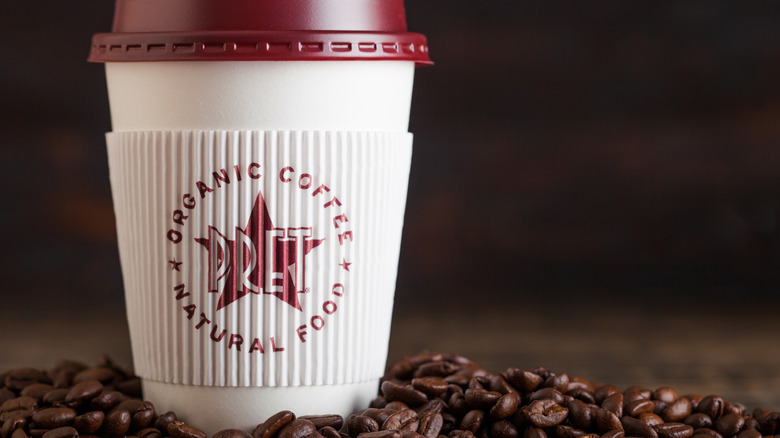Why Pret-A-Manger's UK Customers Are Seeing Red Over Its Coffee
It must have sounded like a good idea at the time for British chain Pret-a-Manger to offer guests five daily handcrafted beverages, covering choices that included "up to five organic coffees, teas, lattes, hot chocolates and more every day" if they paid a flat fee of 20 GBP ($27.22) monthly (via Pret-a-Manger).
But things don't always go according to plan. Since Pret launched that subscription service in 2019, per Restaurant Dive, inflation has eaten into food costs, and more often than not, restaurants have had to pass material cost increases along to the customers to stay afloat. Pret is no different; thanks to rising coffee prices, the chain has had to increase more than 50% to the price of a cup of filtered coffee, which has gone from a pre-pandemic price tag of 99p (about $1.35) — to 1.50 GBP (S2.04), per This is Money.
Pret's other hot beverages have been seen crossing the 3 GB ($4.08) threshold, too. Before all that, the price of a cup of filtered coffee could drop to as low as 49p (68 cents) if customers remembered to bring their own reusable cup.
Pret did try to make nice with its beverage plan subscribers, though. The company sent out an email explaining that prices were up thanks to inflation and an increase in VAT — but it didn't make everyone feel better.
Social media users lashed out over Pret's price increases
Twitter users were irate over Pret-a-Manger's price increase for an item that one social media user said they didn't even have to pay for in the past. "2 years ago it was 50p at Pret for filter coffee if you took your own cup. They often gave me one for free or didn't have any filter coffee on the go and just gave me an American I for 50p," one Twitter user fumed. Another said: "Don't get me wrong, I love a good @pret coffee. I'm even signed up to their monthly subscription, but if I had to pay more than £3 for a flat white I'd lose my mind. The least they could do is tell people their prices are going up..."
Still, the price increases for coffee aren't just about wanting to turn a profit. Coffee futures hit a 10-year high in February. And while that's not expected to have a direct impact on the price of your morning java just yet, it does show how tight coffee supplies are thanks to a drop in production — and those supplies aren't expected to be adjusted until May or June of this year, per Bloomberg.
So while coffee is getting more expensive, the bad news is that prices could still go higher. This could be just the start of a very wild ride.

